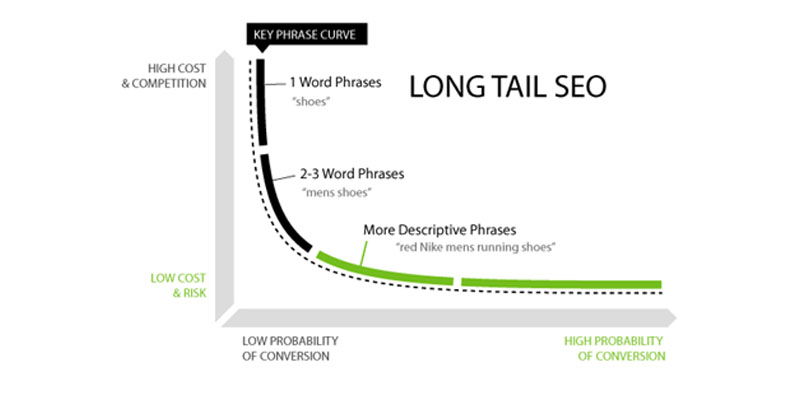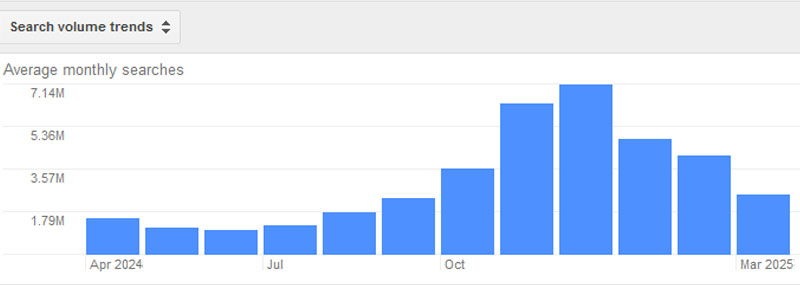Keywords Research for SEO Ranking
By raccess21 on Invalid Date

Keyword Research for SEO Ranking
Keywords are the foundation of search engine optimization. When a person searches for something on Google, the words they type are matched against keywords used across millions of web pages. If your site includes the right keywords, and they're used in the right places, you have a better shot at being discovered.
The process starts with one goal: match your content to what people are searching for. If you get it right, more people find you. If you get it wrong, you're invisible.
What Are Keywords?
Keywords are words or short phrases that describe the topic of your page. They help Google understand what your content is about.
A keyword can be just one word, like shoes, or a longer phrase, like best trail running shoes for beginners. These longer ones are called long-tail keywords.
What Is Keyword Research?

Keyword research is the process of finding out what words your potential visitors are typing into search engines. Once you have that list, you use those keywords in your content so that your page has a chance to rank when someone searches for those terms.
This is not guesswork. It’s research.
Four Terms You Need to Know
-
Keywords
Words or phrases that explain what your page is about. These help search engines match your content to someone’s search query.
-
Long-Tail Keywords
These contain three or more words. They have lower search volume but higher conversion rates because they’re more specific. Over 70% of Google searches use long-tail phrases.
-
Search Volume
This tells you how often a keyword is searched each month. Higher search volume means more people are looking for it.
-
Competition
High-volume keywords often have high competition. If thousands of sites are targeting the same keyword, it’s hard to rank. A good keyword has strong volume and low competition.
How to Choose the Right Keywords
There’s no one-size-fits-all method. But you can use a simple step-by-step process to narrow your list and improve your chances.

- Start with brainstorming. Think like your customer. What would they type to find your product or service?
- Use keyword tools. Google Keyword Planner and Ubersuggest are free. Paid tools like Ahrefs or SEMrush give more detail, including keyword difficulty and competitor rankings.
- Include modifiers. Words like “how,” “best,” “cheap,” or “near me” make your keywords more precise.
- Check search volume and difficulty. Aim for keywords that balance traffic potential with realistic competition.
- Refine by relevance. Make sure every keyword you pick matches the actual content of the page.
- Assign keywords to pages. Don’t use the same keyword on every page. One keyword = one page.
Automate Keyword Research with Python
If you manage many pages or products, manual research won’t scale. You can automate parts of the process with Python.
1. Get Search Volume Automatically
Use the Google Ads API or SerpApi with Python to pull monthly search volume for a list of keywords.
from serpapi import GoogleSearch
params = {
"engine": "google",
"q": "best trail running shoes",
"api_key": "your_api_key"
}
search = GoogleSearch(params)
results = search.get_dict()
print(results["search_information"]["total_results"])
2. Analyze Competitor Keywords
Use BeautifulSoup or requests to scrape meta tags, headings, or visible content from competitor sites to extract the keywords they rank for.
3. Filter Low-Competition Keywords
Pair scraped keyword ideas with metrics from tools like Moz or SEMrush (through their APIs) and filter those with:
- High search volume
- Keyword difficulty score < 30
You can then export these into a CSV for content planning.
4. Cluster Related Keywords
Use scikit-learn or spaCy to group similar keywords so you can create topic-focused clusters.
from sklearn.feature_extraction.text import TfidfVectorizer
from sklearn.cluster import KMeans
keywords = ["cheap yoga mat", "affordable yoga mat", "eco yoga mat", "non-slip yoga mat"]
vectorizer = TfidfVectorizer()
X = vectorizer.fit_transform(keywords)
model = KMeans(n_clusters=2)
model.fit(X)
for i, label in enumerate(model.labels_):
print(f"{keywords[i]} -> Cluster {label}")
This lets you group keywords into specific content pieces instead of spreading them randomly.
Keep Updating
Key Points
- Keyword trends change. Algorithms evolve. What worked six months ago may be obsolete today. That’s why keyword research isn’t a one-time task. Make it a habit.
- Good keyword strategy doesn’t guarantee success-but bad keyword choices almost guarantee failure.
- Don’t just chase what people search. Make sure your page delivers what they expect when they land.
The goal is not just to get clicks. It’s to get the right clicks.




